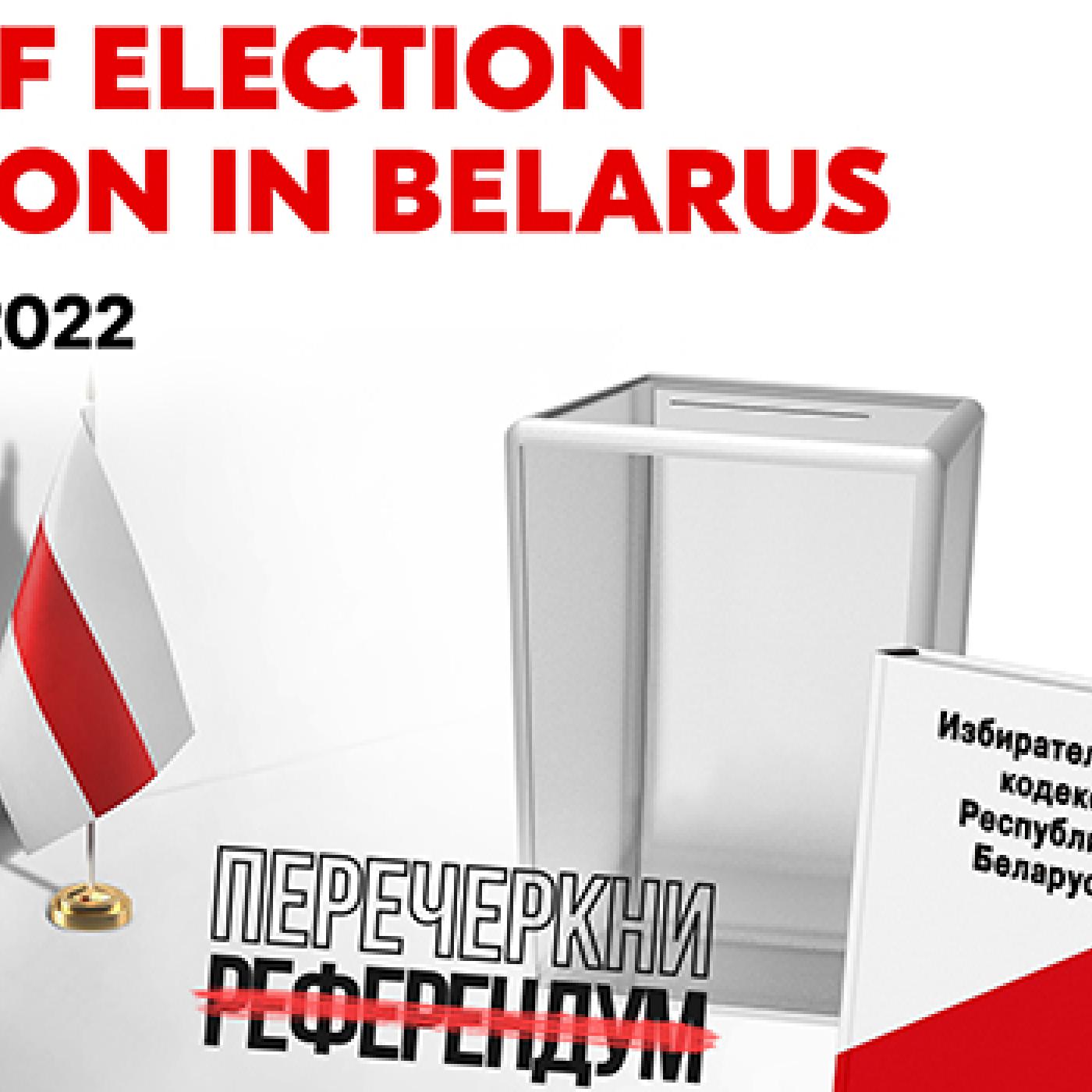Tools & Resources
Filter by
Type
Publication date
Language
Type
Publication date
Language
News & Updates
Press Release
IFES Statement on Dissolution of ACEEEO Due to Russian Federation War in Ukraine
IFES' statement on the dissolution of ACEEEO due to the Russian Federation's war on Ukraine.
Election FAQ
FAQs: Belarus Constitutional Referendum 2022
IFES presents frequently asked questions (FAQs) on Belarus Constitutional Referendum 2022.
News & Updates
Announcement
Expert Seminar: “Future of Election Regulation in Belarus”
IFES is pleased to announce an expert seminar organized by the Office of Sviatlana Tsikhanouskaya on the “Future of Election Regulation in Belarus” from Jan. 11-12.
News & Updates
Feature
Elections on Trial Project: Inaugural Meeting of the Europe and Eurasia Electoral Jurisprudence Working Group
IFES is working to establish peer networks in Europe and Eurasia and Africa, supported by the United States Agency for International Development. Regional knowledge exchange allows judges and election commissioners to discuss best practices and share comparative examples of how other countries deal with specific categories of complaints and disputes.
Publication
Report/Paper
Lithuania: Money and Politics Case Study
Lithuania has rapidly developed both politically and economically since emerging from the Soviet Union in 1991. While the country has built a functioning parliamentary system of government, has become a member of NATO, and is on the verge of joining the European Union, it still faces many problems associated with the many consolidating democracies around the world. As in all democracies, populations need to trust that those they elect will represent their interests. Problems such as corruption, weaknesses in laws concerning the political financing, and unaccounted for political income and expenditures threaten the credibility of the process and hinder the speed at which democracy is consolidated. Additionally, Lithuania lacks the high level of vibrant debate about the issue of political financing among scholars, journalists and civil society bodies required to promote meaningful reform. Recognizing this, Lithuania has developed an independent Central Electoral Committee (CEC) and adopted laws requiring detailed and public disclosure of political finance accounts. Prior to conducting Money and Politics programming in Lithuania, the CEC had made a demonstrable interest in making information public. While scanning summary report of accounts and placing them on the internet, the user could not search, not easily compare and analyze the information. Interested parties were required to make an appointment to view more detailed, paper-based information. Further, while the Tax Authorities are required to audit final political party reports, enforcement is widely considered to be weak. Few, if any, cases of political finance violations have been forwarded and investigated, not to mention prosecuted. By addressing the difficult issues surrounding political finance with the support of IFES in 2002 and 2003, Lithuania is emerging as a model for other consolidating democracy to follow. Significant areas remain to be addressed. While Lithuania has taken concrete steps to reform political finance legislation, open political finance information to public scrutiny and oversight, and encourage debate, further efforts are required to actively enforce laws and regulations and raise the level of debate among the various governmental, legislative, and civil society groups. By addressing these areas, Lithuania has the potential for being an example of best practices while making local expertise and resources to other countries undergoing similar reforms.
December 31, 2002
Election Material
Ballot
Belarus Referendum Ballot 1996
Ballot used for the seven-question referendum held in Belarus on 24 November 1996. The first four questions in the referendum were proposed by President Alexander Lukashenko, and the final three were proposed by the Supreme Court. The voters voted on the following:
-Whether Independence Day should be moved to 3 July, to commemorate the liberation of Belarus
-Approval of the constitutional amendments proposed by President Lukashenko
-Approval of the free sale of land
-Abolition of the death penalty
-Approval of the constitutional amendment proposed by the Supreme Soviet
-Direct elections to local bodies
-Should all state expenses be part of the national budget.
-Whether Independence Day should be moved to 3 July, to commemorate the liberation of Belarus
-Approval of the constitutional amendments proposed by President Lukashenko
-Approval of the free sale of land
-Abolition of the death penalty
-Approval of the constitutional amendment proposed by the Supreme Soviet
-Direct elections to local bodies
-Should all state expenses be part of the national budget.
Election Material
Election and Political Party Law
Belarus Presidential Election Law
Belarus Presidential Election Law
Election Material
Constitution
Constitution of The Republic of Belarus
Constitution of The Republic of Belarus







